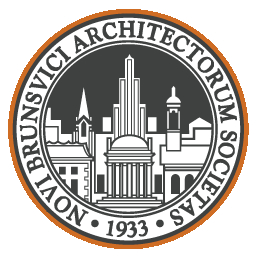The Future Is Factory Built: The Ins and Outs of Off-Site Construction
Prefabrication and factory-built systems are allowing architects and designers to achieve efficiencies throughout the building process
Sponsored by Think Wood
Webinar On-Demand
What is off-site construction and how can it benefit your next project? This webinar will review where and how architects are using factory-built elements in their projects—from simple panelization to modular construction and the incorporation of fully three-dimensional components fabricated in a factory and then assembled on site. With an emphasis on mass timber structures, our presenters will walk you through several dynamic projects that incorporate factory-built components to achieve efficiencies and integrate sustainable practices, while meeting aesthetic, performance, and safety goals.
Presentation highlights include:
KieranTimberlake’s Matthew Krissel will present OpenHome, a project that highlights better living through smarter design. OpenHome, a design system from sustainable architecture pioneers LakelFlato, KieranTimberlake, and Bensonwood, is sustainably built and designed to exceed all current expectations for home health, comfort, and style. Every OpenHome design can be built to Passive House certification standards, reflecting the team’s shared belief that meeting the needs of today's generation should never come at the expense of tomorrow's.
Jonas Weber will present examples from a few of David Baker Architects’ modular residential projects, highlighted by the recently completed Tahanan Supportive Housing. Tahanan brings 145 factory-built studio apartments of permanent supportive housing for adults who have experienced homelessness to the SOMA District of San Francisco. The project provides desperately needed housing that is efficiently constructed yet distinct to the neighborhood, dignified and resilient. Modular design integration was necessary to meet three intersecting imperatives of the project: serving formerly unhoused residents, serving the community, and fast, affordable delivery.
Matthew Laase of Jackson Main will focus on Cubix Othello, the next step in modular affordable urban design and the first project to utilize the firm’s reconfigurable kit of parts, allowing for rapid iteration and development of future sites. Located at the Othello light rail station in Seattle, WA, the project is a progressive solution to providing workforce housing. Tucked in amongst other multifamily apartments, the six-story structure has a basement, ground floor plus mezzanine concrete podium and five levels of volumetric modular above, housing 85 studio, 1- and 2-bedroom units. The project includes a first-floor community space, and resident amenities including bicycle parking, fitness, and a rooftop deck overlooking Lake Washington and Mt. Rainier.
Jared M. Revay of Swinerton will round out the panel, presenting a 9-acre mass timber roof project on a prefabrication lot to the northwest of PDX International Airport. Key among the project team’s objectives is to deliver the Port’s sustainability goals to source 100% of the wood regionally from verified sustainable sources. The construction crews are now installing the last component—an intricate wood lattice, sourced from sustainable forests, which will eventually cover the interior ceiling.
The presentations will be followed by a moderated discussion focused on how these innovative projects address several key issues related to the design, performance and efficiencies of off-site construction.

Photo courtesy of Kieran Timberlake
Introducing OpenHome: a new system for designing beautifully crafted, environmentally ethical homes
 |
Matthew Krissel, AIA, LEED AP, is an architect and partner at KieranTimberlake. He designs places, buildings, and environments, connects people with ideas, and creates new methods and platforms for thinking and making. With a long history in off-site construction, he is currently leading OpenHome, a high-performing, off-site fabricated house product developed in partnership with Bensonwood Homes. |
|
Jonas Weber is an associate at David Baker Architects. He leads DBA's modular design studio overseeing the firm's modular multi-family and supportive housing projects, developing modular design and construction standards and leading modular construction research initiatives. |
 |
Matthew Laase, A Principal at Jackson|Main Architecture in Seattle, WA, Matt brings over 28 years of experience in architecture with a focus on commercial, retail and multifamily design. Passionate about providing quality in everything he does, his specialties include developing collaborative solutions, project management, and modular design. Matt is the Chair of the Advisory Board for the WSU School of Architecture and a Council member for the City of Snoqualmie. |
 |
Jared Revay, Senior Project Manager for Swinerton currently oversees the 9-acre mass timber scope at PDX International Airport. He is responsible for the planning and execution to detail, manufacture, fabricate, finish, and install of all the mass timber components as a kit of parts. Jared also serves the project to deliver the Port’s sustainability goals to source 100% of the wood regionally from verified sustainable sources. |
LEARNING OBJECTIVES
- Discover the different methods of off-site construction and how codes (ex.: green building, safety, etc.) can be verified on-site.
- Explain the project schedule advantages related to off-site construction.
- Detail ways in which sustainability goals can be achieved through the use of low-carbon factory-built components.
- Discuss how off-site construction approaches, particularly utilizing sustainable materials, can affect project costs, labor quality, and construction quality issues.










